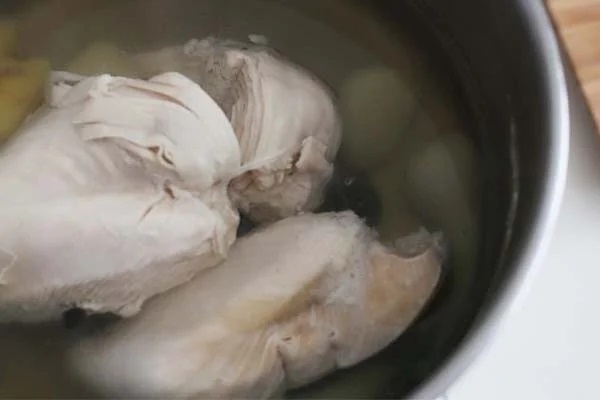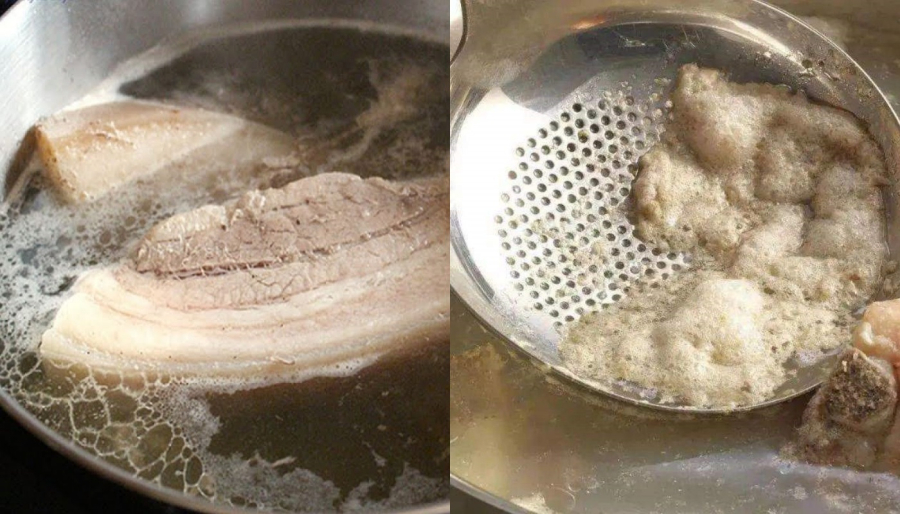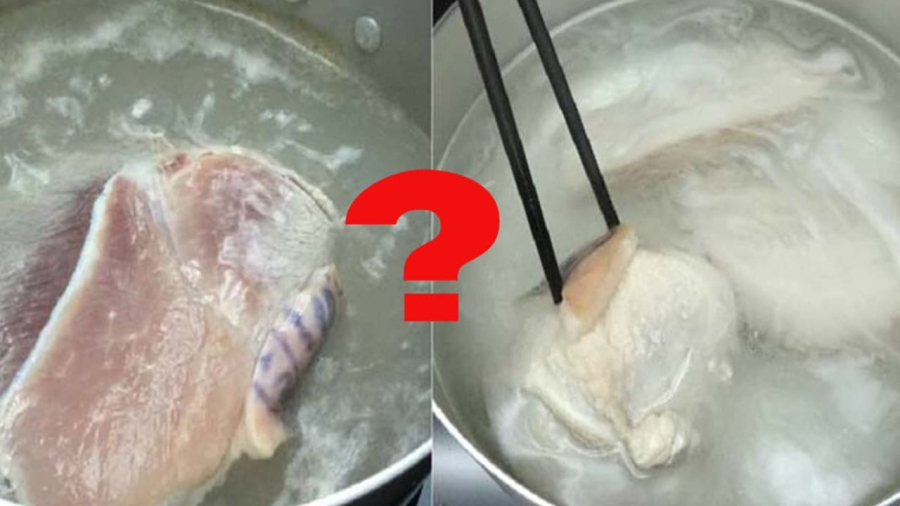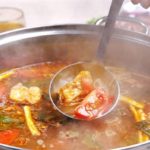Boil the meat with boiling water
This boiling method is rarely seen bubbles rising, making many people think that the meat is clean, not pumped with growth enhancers or tenderizers. In fact, when raw meat is dropped into boiling water, the meat fibers and protein compounds become firm and stick together, preventing the internal protein from escaping. This means that the toxins also stay trapped and there are no bubbles rising.

As the denatured meat contracts, it absorbs more chemicals and impurities. Therefore, if the meat is dirty and already contains toxins, boiling it this way will make it even dirtier and more toxic.
Boiling meat by dropping it into boiling water can result in a sweeter taste compared to boiling meat by starting with cold water. However, since it does not eliminate as many impurities and toxins in the meat, it can have long-term effects on the health of consumers.
Boil the meat with cold water
Adding the meat to cold water from the beginning allows the nutrients in the cells to seep out, and when these substances seep out, the residues also seep out. Therefore, when boiling meat this way, you have to skim off the foam and residues.
According to nutrition experts, how to cook depends on the needs of each family. Many families want to have a delicious piece of meat, so they choose to drop the meat into boiling water. On the other hand, those who want cleaner meat should choose to drop the meat into cold water from the beginning and then heat it up.
Therefore, many people use hot water to boil the meat, causing the pork to contract quickly, causing the excess blood inside the pork to flow out. This is what makes the meat have a fragrant aroma but becomes tough and dry. Therefore, when boiling meat, cold water should be used, slowly heating up the water, and the excess blood in the pork will flow out slowly, so after the meat is cooked, it will not have a foul smell.
Eliminate the smell of meat
To eliminate the smell of pork, you need to prepare 1 dried onion and a little white wine. Next, use a knife to crush the dried onion and then wash the meat thoroughly under the tap water. After that, put the piece of pork into the pot along with the crushed onion on top. Then, boil until the meat is cooked. The fragrance of the dried onion will eliminate the smell of the meat.

The correct way to boil meat
After boiling the meat until cooked, you can add a few drops of white wine to the pot and then remove the meat to let it drain. The meat will no longer have a foul smell and will be more delicious. At the same time, regularly skimming off the foam will make the broth clearer, making the meat cleaner and less fishy.
Preparation: 500g of delicious pork belly, a small amount of ginger, cooking wine, water
Instructions:
Wash the meat once under running water, then put it in a clean basin, add water and a little salt, soak for 3 hours for the excess blood and the smell of meat to diminish. It is recommended to change the water once during the soaking process.

After soaking the pork, rinse it once, then put the pork, ginger, cooking wine in the pot with an appropriate amount of water. Boil the meat on high heat until the meat is cooked.
After the meat is cooked, soak it in cold water for about 3 minutes to make the meat firm and fragrant without becoming discolored.
If you want the pork to be white and not discolored after boiling, during the boiling process, you should add a little salt and a few drops of vinegar to the boiling water. Then, add the piece of meat and bring it to a boil, let it boil for about 3 minutes, then take the meat out, rinse it with warm water to clean it thoroughly. Then, boil another pot of water and add the piece of meat to boil until cooked. The meat will be white and attractive when served on a plate.
Meat to Preserve Flavor’>3 Spices to Limit when Boiling Meat to Preserve Flavor
Maximizing Durability and Energy Efficiency with High-Speed Kettles: Tips and Advice
Are you an electric kettle aficionado? If so, you’ll appreciate Ði?n máy Xanh’s latest offering. We’ve compiled comprehensive instructions to help you make the most of your electric kettle, including tips on how to prolong its life as well as maximize energy savings. Let’s get your kettle expertise up to date!





































